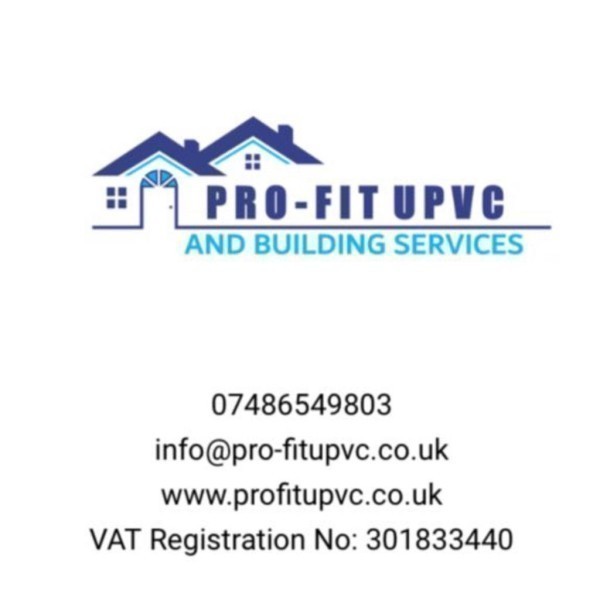Loft Conversions in Southport
Welcome to Paul Rossiter Construction Ltd, your trusted partner for all building needs in Liverpool and across Mersey... read more »
Welcome to Omnis Developments Ltd, your go-to experts for all building and renovation needs in Tower Hill and across Merseyside. As a lea... read more »
Welcome to Brandon Green Homes T/a Renovaserve Ltd, your trusted partner for all your buildin... read more »
M&F Roofing is a trusted name in the heart of Billinge, providing top-notch services as roo... read more »
Pro-fit UPVC Ltd: Your Trusted Builders and Roofers in Hall Green, Lancashire
Welcome to Pro-fit UPVC Ltd, your... read more »
South Penny Lane Roofing And Building Services is a renowned business located in the heart of Belle Vale, offering a com... read more »
Welcome to DPF Joinery, your premier choice for builders, carpenters, roofers, renovations, joiners, extension builders, loft conversions... read more »
Welcome to ProWright, your premier choice for builders, property maintenance, kitchen installation, renovations, and loft conversions in... read more »
Welcome to We Refurb Ltd, your premier choice for builders and renovation services in Northwood and across Merseyside. With a wealth of e... read more »
Platinum Builders & Developers Ltd, nestled in the bustling heart of Sandhills, is your premier choice for all construct... read more »
Lee Leatherbarrow Building and Roofing is a premier choice for property maintenance in Broad Oak, proudly serving the Me... read more »
P&M Joinery And Building Services, nestled in the vibrant community of Edge Hill, is your premier choic... read more »
Welcome to Bridge Developments UK, your premier choice for extension builders, bathroom fitters, kitchen fitters, and loft conversions in... read more »
Welcome to Elevate Construction Group Ltd, your trusted partner for all your building needs in Leyland and throu... read more »
Welcome to Saeed, your go-to experts for all your home improvement needs in Page Moss and across Merseyside. Specialising in extension bu... read more »
Paul Loughran Builders: Leading Builders in Ford, Merseyside
Welcome to Paul Loughran Builders, your premier cho... read more »
Welcome to Fylde Brickwork Ltd, your trusted partner... read more »
Andy Walker & Son Loft Conversion Specialist<... read more »
Waterhouse Builders Ltd, a reputable... read more »
Welcome to Golding Maintenance, your premier choice f... read more »
Search Loft Conversions in places nearby
Introduction to Loft Conversions in Southport
Loft conversions in Southport have become increasingly popular as homeowners seek to maximise their living space without the hassle of moving. With the charming seaside town's property market on the rise, converting an underutilised attic into a functional room is a smart investment. This article will guide you through the ins and outs of loft conversions, ensuring you make informed decisions every step of the way.
Understanding the Benefits of Loft Conversions
Loft conversions offer numerous advantages, making them an attractive option for many homeowners. Firstly, they increase the usable space in your home, providing an additional bedroom, office, or playroom. Secondly, they can significantly boost your property's value, often by more than the cost of the conversion itself. Lastly, loft conversions are a cost-effective alternative to moving, allowing you to stay in your beloved Southport home while enjoying more space.
Increased Living Space
One of the primary benefits of a loft conversion is the additional living space it provides. Whether you need an extra bedroom for a growing family or a quiet office to work from home, a loft conversion can meet your needs without altering the footprint of your home.
Enhanced Property Value
Investing in a loft conversion can significantly increase your property's market value. In Southport, where property prices are steadily climbing, this can be a lucrative investment. Potential buyers often view additional rooms as a major selling point, making your home more attractive on the market.
Cost-Effective Solution
Compared to the costs and stress associated with moving house, a loft conversion is a more economical choice. It allows you to enhance your current home without the need to relocate, saving you time and money in the long run.
Types of Loft Conversions
There are several types of loft conversions to consider, each with its own set of benefits and suitability depending on your home's structure and your personal preferences. Understanding these options will help you choose the best fit for your Southport property.
Velux Loft Conversion
A Velux loft conversion is one of the simplest and most cost-effective options. It involves installing Velux windows into the existing roof structure, providing natural light and ventilation. This type of conversion is ideal for lofts with ample headroom and is less disruptive than other methods.
Dormer Loft Conversion
The dormer loft conversion is a popular choice for those seeking to add more space and headroom. It involves extending the existing roof to create a box-like structure, which can accommodate windows and additional floor space. This type of conversion is versatile and can be adapted to suit various property styles.
Mansard Loft Conversion
Mansard conversions are more complex and involve altering the roof structure to create a flat roof with a steep back wall. This type of conversion provides maximum space and is often used in terraced houses. While it requires more extensive construction work, the result is a spacious and versatile living area.
Hip to Gable Loft Conversion
This conversion is suitable for properties with a hipped roof, where the sloping side is extended to create a vertical gable wall. This alteration increases the internal space and is often combined with a rear dormer for even more room. It's a popular choice for semi-detached and detached homes in Southport.
Planning Permission and Building Regulations
Before embarking on a loft conversion, it's essential to understand the planning permission and building regulations that apply in Southport. While some conversions fall under permitted development rights, others may require formal approval.
Permitted Development Rights
Many loft conversions can be carried out under permitted development rights, meaning you won't need to apply for planning permission. However, there are specific criteria your project must meet, such as not exceeding a certain volume and not altering the roof's height.
When Planning Permission is Required
If your conversion doesn't meet the criteria for permitted development, you'll need to apply for planning permission. This is often the case for mansard conversions or if your property is in a conservation area. It's crucial to consult with your local planning authority to ensure compliance.
Building Regulations Compliance
Regardless of whether planning permission is needed, all loft conversions must comply with building regulations. These regulations ensure the safety and structural integrity of the conversion, covering aspects such as fire safety, insulation, and staircases. Hiring a qualified architect or builder can help navigate these requirements.
Choosing the Right Contractor
Selecting a reputable contractor is vital to the success of your loft conversion. A skilled professional will ensure the project is completed to a high standard, on time, and within budget. Here are some tips for choosing the right contractor in Southport.
Research and Recommendations
Start by researching local contractors and seeking recommendations from friends or family who have undertaken similar projects. Online reviews and testimonials can also provide valuable insights into a contractor's reliability and quality of work.
Verify Credentials and Experience
Ensure the contractor you choose is fully licensed and insured. It's also beneficial to select a contractor with extensive experience in loft conversions, as they will be familiar with the specific challenges and requirements of such projects.
Obtain Multiple Quotes
Request quotes from several contractors to compare costs and services. Be wary of quotes that seem too good to be true, as they may indicate subpar materials or workmanship. A detailed quote should outline all aspects of the project, including materials, labour, and timelines.
Design Considerations for Your Loft Conversion
The design of your loft conversion is crucial to its functionality and aesthetic appeal. Thoughtful planning will ensure the space meets your needs and complements the rest of your home.
Maximising Natural Light
Incorporating ample natural light can transform your loft conversion into a bright and inviting space. Consider installing large windows, skylights, or even a glass balcony to flood the area with light and create a sense of openness.
Optimising Space and Layout
Careful consideration of the layout is essential to make the most of your loft conversion. Built-in storage solutions, such as shelving or wardrobes, can help maximise space and keep the area clutter-free. Additionally, consider the placement of furniture and fixtures to ensure a functional and comfortable living environment.
Choosing the Right Finishes
The finishes you choose for your loft conversion can significantly impact its overall look and feel. Opt for high-quality materials that complement the existing style of your home. Neutral colours and natural textures can create a timeless and cohesive design.
Cost Estimation and Budgeting
Understanding the costs involved in a loft conversion is crucial for effective budgeting. While prices can vary depending on the type of conversion and the materials used, having a clear budget will help you manage expenses and avoid unexpected costs.
Factors Influencing Cost
Several factors can influence the cost of a loft conversion, including the size and complexity of the project, the type of conversion, and the quality of materials used. Additional expenses may include planning permission fees, building regulation approvals, and professional services such as architects or structural engineers.
Setting a Realistic Budget
To set a realistic budget, obtain detailed quotes from contractors and factor in any additional costs. It's also wise to include a contingency fund for unexpected expenses. By planning carefully, you can ensure your loft conversion stays within budget while achieving your desired outcome.
Financing Options
If you're concerned about financing your loft conversion, there are several options available. Home improvement loans, remortgaging, or using savings are common methods. It's important to explore these options and choose the one that best suits your financial situation.
Frequently Asked Questions
- Do I need planning permission for a loft conversion in Southport? Many loft conversions fall under permitted development rights, but it's essential to check with your local planning authority to ensure compliance.
- How long does a loft conversion take? The duration of a loft conversion can vary depending on the complexity of the project, but most conversions take between 6 to 12 weeks to complete.
- Can all lofts be converted? While most lofts can be converted, some may not be suitable due to structural limitations or insufficient headroom. A professional assessment can determine feasibility.
- Will a loft conversion add value to my home? Yes, a well-executed loft conversion can significantly increase your property's value, often by more than the cost of the conversion itself.
- What is the best type of loft conversion for my home? The best type of loft conversion depends on your home's structure, your budget, and your personal preferences. Consulting with a professional can help you make an informed decision.
- How can I ensure my loft conversion complies with building regulations? Hiring a qualified architect or builder familiar with local building regulations can help ensure your loft conversion meets all necessary requirements.
Final Thoughts on Loft Conversions in Southport
Loft conversions in Southport offer a fantastic opportunity to enhance your living space and increase your property's value. By understanding the various types of conversions, planning permissions, and design considerations, you can embark on a successful project that meets your needs and complements your home. With careful planning and the right professional guidance, your loft conversion can transform your home into a more functional and enjoyable space.





















